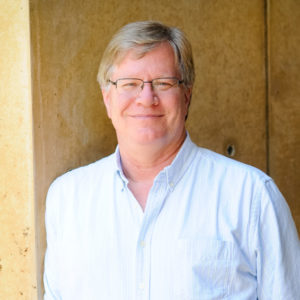Stanford Law Professor Robert MacCoun Honored with 2019 APS James McKeen Cattell Fellow Award
The Association for Psychological Science (APS) recently announced that Stanford Law School James and Patricia Kowal Professor of Law Robert J. MacCoun has been honored with the 2019 APS James McKeen Cattell Fellow Award, to recognize a lifetime of outstanding contributions to the area of applied psychological research. MacCoun will be recognized at the 31st APS annual convention next May 23-26, 2019 in Washington, D.C.

“My career path has been somewhat unorthodox for a psychologist, but I’ve always been drawn to questions at the intersection of psychology and public problem solving,” said MacCoun. “It truly means a lot to me to get this recognition from APS, the leading organization of psychological scientists.”
MacCoun is a social psychologist and public policy analyst who has published numerous studies on a variety of topics, including illicit drug use, drug policy, judgment and decision-making, citizens’ assessments of fairness in the courts, social influence processes, and bias in the use and interpretation of research evidence by scientists, journalists and citizens. A preeminent scholar working at the border of law and psychology, his scholarship involves a mix of experimental and non-experimental empirical research as well as computational modeling and simulation.
His book with Peter Reuter, Drug War Heresies (Cambridge, 2001) is considered a landmark scholarly analysis of the drug legalization debate. MacCoun has also written extensively on the military’s “Don’t Ask, Don’t Tell” policy. His publications and expert testimony on military unit cohesion were influential in the 1993 and 2010 policy debates about allowing gays and lesbians to serve openly in the US military.
MacCoun’s recent publications include “Hide Results to Seek the Truth,” Nature (2015), “Half Baked: The Retail Promotion of Marijuana Edibles,” New England Journal of Medicine (2015), and “The Burden of Social Proof: Shared Thresholds and Social Influence,” Psychological Review, (2012).
MacCoun is also a senior fellow at the Freeman Spogli Institute and has a courtesy appointment with the Stanford Department of Psychology.
About Stanford Law School
Stanford Law School is one of the nation’s leading institutions for legal scholarship and education. Its alumni are among the most influential decision makers in law, politics, business, and high technology. Faculty members argue before the Supreme Court, testify before Congress, produce outstanding legal scholarship and empirical analysis, and contribute regularly to the nation’s press as legal and policy experts. Stanford Law School has established a model for legal education that provides rigorous interdisciplinary training, hands-on experience, global perspective and focus on public service, spearheading a movement for change.
About the Association for Psychological Sciences
APS is the leading international organization dedicated to advancing scientific psychology across disciplinary and geographic borders. Our members provide a richer understanding of the world through their research, teaching, and application of psychological science. We are passionate about supporting psychological scientists in these pursuits, which we do by sharing cutting-edge research across all areas of the field through our journals and conventions; promoting the integration of scientific perspectives within psychological science and with related disciplines; fostering global connections among our members; engaging the public with our research to promote broader understanding and awareness of psychological science; and advocating for increased support for psychological science in the public policy arena.

